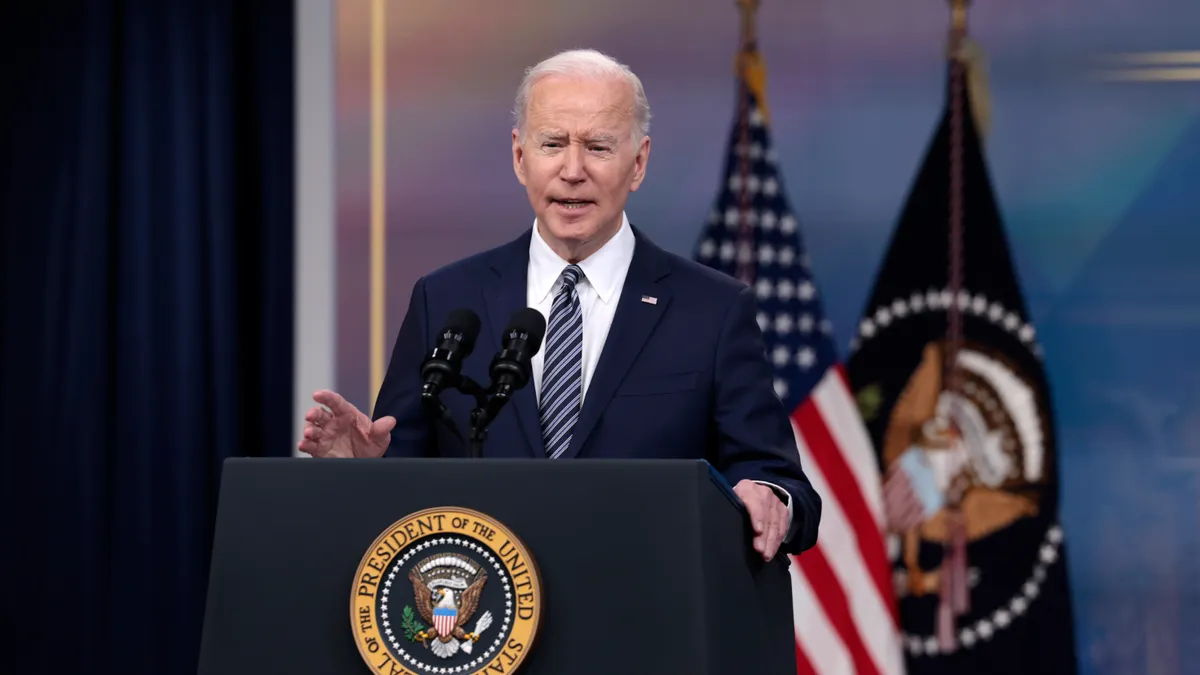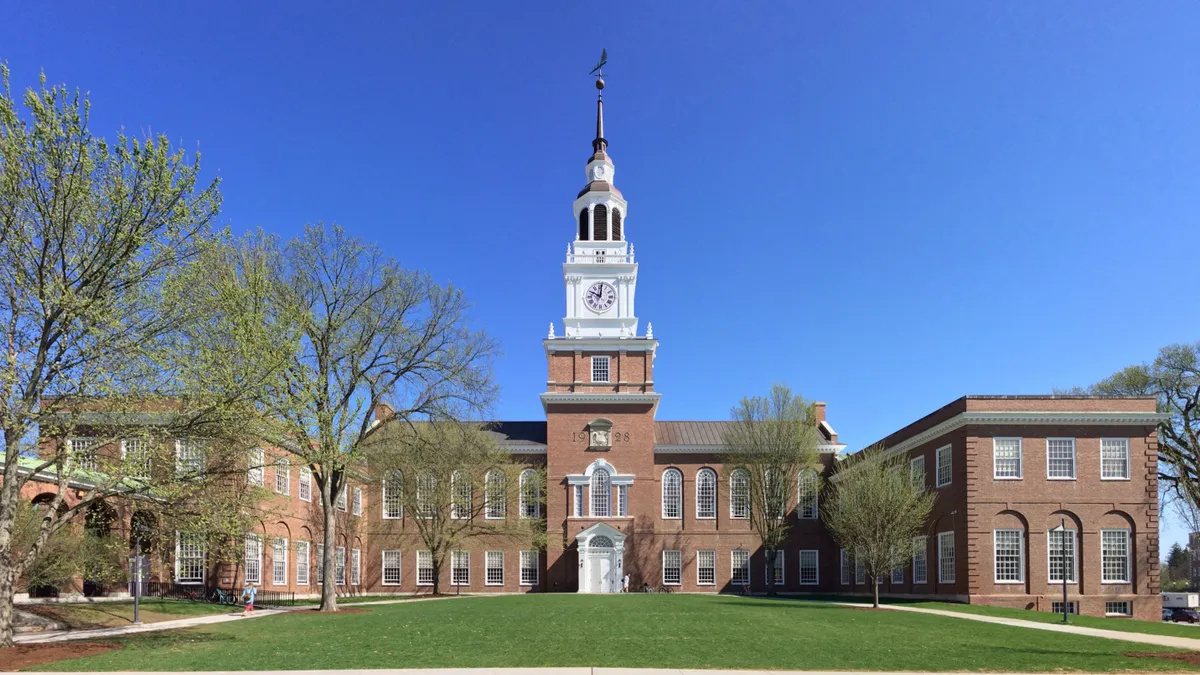Dive Brief:
- The U.S. Department of Education announced Wednesday it is discharging $5.8 billion in student loans held by borrowers who attended Corinthian Colleges, a for-profit chain that collapsed in 2015.
- All 560,000 borrowers with outstanding loans will receive discharges under the borrower defense to repayment rule, which allows students who've been defrauded by their colleges to have their education debt forgiven. The Ed Department said the action is the single largest loan discharge in its history.
- Borrowers who attended the chain from its founding in 1995 through its closure in 2015 will receive relief even if they have not filed for a borrower defense discharge. Altogether, the Biden administration has forgiven some $25 billion in student debt since January 2021, including $7.9 billion for students whose institutions closed or who received relief under the borrower defense rule.
Dive Insight:
Although the borrower defense rule has existed for decades, applications for this type of relief soared after the regulation took on new relevance following the high-profile collapse of Corinthian Colleges. Over 100,000 former Corinthian students already received individual loan discharges under the borrower defense rule prior to Wednesday's announcement.
At its height, the for-profit chain enrolled 110,000 students across 105 campuses, according to the Ed Department. In 2013, Vice President Kamala Harris, who was then the attorney general of California, filed a lawsuit against Corinthian Colleges alleging they intentionally misled students over job placement rates and engaged in false advertising. The lawsuit kicked off other investigations into the chain, leading it to shutter in 2015. Harris obtained a $1.1 billion judgment against Corinthian in 2016.
"For far too long, Corinthian engaged in the wholesale financial exploitation of students, misleading them into taking on more and more debt to pay for promises they would never keep," Education Secretary Miguel Cardona said in a statement Wednesday. "While our actions today will relieve Corinthian Colleges’ victims of their burdens, the Department of Education is actively ramping up oversight to better protect today’s students from tactics and make sure that for-profit institutions — and the corporations that own them — never again get away with such abuse.”
The announcement follows other recent actions against for-profit colleges. In March, the Ed Department announced that it will hold the owners of certain private colleges financially liable if they defraud students or close without warning — a move that will largely affect proprietary schools.
And a month earlier, the Ed Department said it will cancel $415 million in debt for some 16,000 borrowers, including those who attended the for-profit DeVry University. That announcement marked the first time the agency granted borrower defense relief to students who attended an institution that remains open and continues to receive federal financial aid.
The Education Department is also currently drafting a new borrower defense rule, which has seen several revisions over the last few years.
After Corinthian Colleges closed, the Obama administration created a new borrower defense regulation to make it easier for students to get debt relief. But when the Trump administration took over, Education Secretary Betsy DeVos delayed the rule's implementation and stopped processing relief claims. Under DeVos, the Education Department updated the rule to increase borrowers' burden of proof — a change that today makes it difficult for new borrowers to receive loan forgiveness.
The Ed Department filed a proposal for a new borrower defense rule with the Office of Management and Budget in late April. Once the budget office approves the proposal, the Ed Department will publish the proposed rule in the Federal Register and invite public comment.
Amid these changes, President Joe Biden has also been facing growing pressure to implement widespread student debt relief. The administration is reportedly considering forgiving $10,000 in student loans per borrower, a move that some advocates have slammed as not going far enough.











